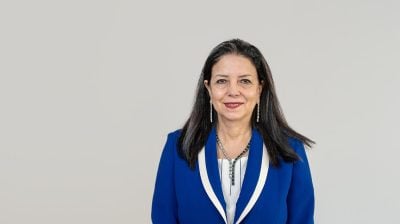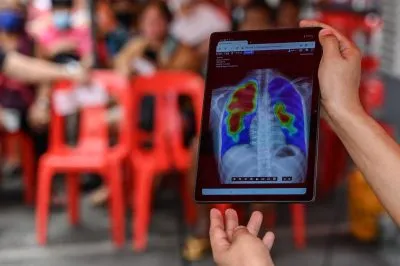Nokia’s decade-old stranglehold on the African mobile market is under severe pressure from Samsung. By customising its products, such as television sets, to African conditions, the Korean electronics giant seems set to sweep all before it over the next few years.
Africa has always been a hot market for electronic gadgets such as mobile phones, computers, cameras, refrigerators, microwaves, television sets. But the mobile phone remains the most popular electronic gadget in Africa and the African love affair with this device shows no signs of cooling.
Nokia used to hold sway in the African mobile market but now Samsung has taken the lead with its new strategy of ruling not only Africa but the whole world. For the third quarter in a row, Samsung has beaten Nokia, which has held the title as the number one seller for 14 straight years in the world market. Recent statistics show that Samsung holds a staggering 23.7% of the world market, 3.6% more than its share in 2011. In the third quarter of 2012, it sold 105.4m phones, which is a 21% increase over its sales in the third quarter of 2011.
In terms of smartphones, Samsung held 31.3% of the global market, which was more than double that of Apple’s 15%. Clearly Samsung sees a noticeable increase in its hold on the market due to the incredible success of the Galaxy line of smart phones. Nokia, which holds the second place, sold 82.9m phones in the third quarter in 2012, which was a drop of 22.2%.
Africa is Samsung’s second-largest and fastest mobile phone market in the world after China, having grown from a base of 90m in 2005 to a current estimate of 450m handsets. Launching the new Samsung Galaxy Note II and Samsung Galaxy Camera in Cape Town, Samsung Electronics Africa vice- president and COO, George Ferreira, said that Samsung mobile phone penetration was 65% with a 500% growth rate in the continent.
Samsung Electronics Co Ltd, a global leader in semiconductor, telecommunication, digital media and digital convergence technologies, posted 2011 consolidated sales of $143.1bn. Employing approximately 206,000 people in 197 offices across 72 countries, the company operates two separate organisations to coordinate its nine independent business units: Digital Media & Communications and Device Solutions. Samsung Electronics was named the world’s most sustainable technology company in the 2011 Dow Jones Sustainability Index.
The company’s products in Africa range from smartphones, Galaxy Note II & III, Notebook PCs and digital cameras to refrigerators, microwaves, and Satellite LED TVs.
Responding to consumer needs
Specifically designed for the African market, the Samsung Free Satellite LED TV allows consumers to enjoy over 30 English-language channels and more than 27 French channels at no cost to them. The television set is also fitted with a built-in satellite tuner that can be connected directly to the satellite dish without the need for a set-top box.
“Through a deep understanding of our consumer needs and wants, and the market trends that have become apparent, we designed this tailor-made solution to the requirements of our African consumers,” said Vishwas Saxena, business leader for consumer electronics at Samsung.
“It has a triple protector technology and withstands the impact of humidity, lightning and electricity surge through reduced power dependency. These TVs are also installed by professionally trained and accredited installers who understand what it means for our consumers to enjoy an uninterrupted TV experience,” Saxena continued.
Fully aware of the digital broadcast migration which is scheduled to hit the world by 2015, Samsung has prepared to get their satellite televisions ready to meet the market demand. According to an article by Peter Galace titled, ‘Prospects in the Africa Satellite Market’, “today only one out of three homes in Africa has a TV set, but this number is expected to grow significantly in the coming years. The digital migration in Africa is already being driven by satellite, and the markets are ready and eager for assistance.” Digital migration became a reality at the 2006 Regional Radio communication Conference (RRC-06) in Geneva, where it was resolved that the digital migration process should be completed by 2015. After 2015, analogue television frequencies will not be protected by the International Telecommunication Union (ITU).
It is against this background that all countries signatory to the ITU set national ‘switch-on’ and ‘switch-off’ deadlines. Before this deadline, countries are in a ‘double/dual illumination’ period where both analogue and digital broadcasting television services have been offered.
Many African countries set out to complete their digital migration but have failed to reach that goal. They are, however, working assiduously to attain the 2015 target. At the 2012 Digital Dialogue Conference, held at the Sandton Convention Centre in Johannesburg, it emerged that the target date of 2015 across Africa may be unrealistic after all. Failure to meet the deadline may, however, have serious consequences on the continent, perhaps leading to a total TV blackout.
Samsung has targeted countries such as South Africa, Nigeria, Tanzania and Ghana, where they have launched their products. The company launched its latest Galaxy III in Johannesburg and over 50,000 handsets were pre-ordered prior to the launch. This indicates a general change in consumer trends among the middle classes across Africa.
Even though about 65% of the South African smartphone market is dominated by BlackBerry, due to the BlackBerry Internet Service, Samsung expects the African market to slowly conform to global trends.
The head of mobile communications at Samsung South Africa, Craige Fleischer, says “South Africa and the African continent is a massive focus for Samsung – not only from a mobile phone perspective, but also from a holistic perspective. We have strong confidence from our partners in South Africa, and it will be very interesting to see how the sales look.
“We have our Build for Africa programme where specific devices and units, not only on the mobile device front, but across the range, have been specifically built for Africa for Africans. The South African market is a unique market. It is the stepping stone into Africa and it’s a very important market for Samsung and we have invested significantly here.”
Training engineers
As part of the company’s strategy to conquer the African market, they are establishing engineering plants on the continent to train young graduates. In Nigeria, Samsung Electronics West Africa, in partnership with the Eko Project, a World Bank-assisted initiative aimed at improving the quality of public secondary education, launched the third Samsung Electronics Engineering Academy in Lagos as part of its goal to develop 10,000 electronics engineers across Africa by 2015.
Located within the Agidingbi Technical College, Ikeja, the Academy, which was opened by Babatunde Fashola, Governor of Lagos State, plans to trained skilled labour for the Samsung industry and Nigeria as a whole. “Upcoming technicians must be exposed to cutting edge technology if they are to remain competitive. The ability to repair the latest technology is key to wealth creation for technicians,” said Babatunde Fashola.
The MD of Samsung Electronics West Africa, Nicholas Shin, said, “Our aim is to promote cooperation, innovation, wealth creation and to facilitate thought leadership in the communities in which we operate in response to their real needs and conditions.”
According to George Ferreira, similar plants will be opened in Ghana to train young Ghanaians in telecoms engineering. The head of hand-held products for Samsung West Africa, Jaspreet Singh, said the company’s market share in Ghana is 43% in terms of volume and 68% in terms of revenue. Samsung has put African tourism-related backgrounds on their phones and in Ghana, it has hired a popular hiplife musician Sarkodie as its icon to market its products.
The MD of Accra Samsung distributor Electroland, Nour Seklaoui, said customers are allowed to buy some of their products on hire purchase with a two-year warranty and free installation.
Want to continue reading? Subscribe today.
You've read all your free articles for this month! Subscribe now to enjoy full access to our content.
Digital Monthly
£8.00 / month
Receive full unlimited access to our articles, opinions, podcasts and more.
Digital Yearly
£70.00 / year
Our best value offer - save £26 and gain access to all of our digital content for an entire year!
 Sign in with Google
Sign in with Google 


